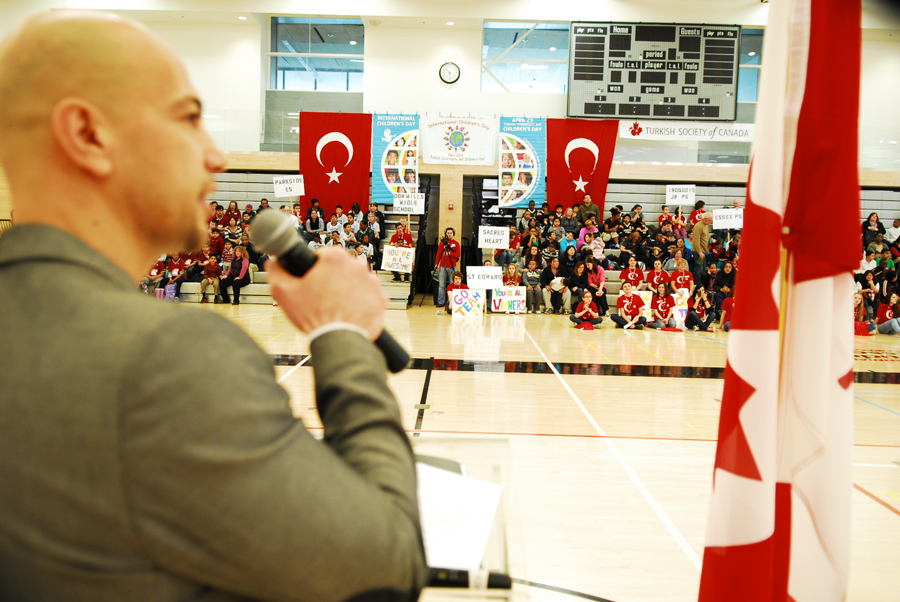Yunus Tughra: Celebrating International Children’s Day with Special Olympics

Canada’s 2014 Special Olympics National Summer Games will be held in Vancouver, BC from July 8 – 13th, 2014. Over 1,700 athletes, coaches and mission staff from across the country will be in attendance at this event. The National Summer Games are a qualifying event for the 2015 World Summer Games to be held in Los Angeles, U.S.A.
A mission to change the way the world views the intellectually disabled has been at the heart of Special Olympics since the first International Summer Games in July 1968. There, through the vision of Eunice Kennedy Shriver, athletes with intellectual disabilities commanded the spotlight at Soldier Field in Chicago, Illinois. For the first time, the world witnessed the dedication, dignity and worth of people who had long been invisible. The world has never been the same since!
Dr. Frank Hayden, a Toronto researcher and professor, demonstrated that intellectually disabled individuals—if given the opportunity—can become physically fit and acquire the physical skills necessary to participate in sport. His work came to the attention of Eunice Kennedy Shriver and the Kennedy Foundation in Washington, D.C., and led to the creation of Special Olympics.
Today as we enter our 45th year in Canada, there are some 35,000 athletes training and competing across the country.
People with intellectual disabilities are encouraged to join Special Olympics for the physical activity which not only helps lower the rate of cardiovascular disease and obesity, but also improves muscular strength and coordination. Also, with the development of athletic skills, participants gain many psychological benefits, including higher self-esteem, communication skills and social competence.
Special Olympics competitions are open to athletes from eight and up. For younger (2-7-year-old) children with intellectual disabilities, Special Olympics has the Young Athletes program—a sport and play program with a focus on fun activities that are important to mental and physical growth. Children engage in games and other activities that develop motor skills and hand-eye coordination. Parents say their children in Young Athletes also develop socially. The confidence boost makes it easier for them to play and communicate with other children in the playground and elsewhere.
Families can also get involved with the Special Olympics experience. Family members support their children to the best of their ability, which may involve attending or volunteering at the events. By being involved, they can further enhance their athlete’s self-esteem and will be looked at as a constant source of encouragement. Volunteers and supporters are an integral part of Special Olympics—and millions of people around the world are committed to its programs. Some are sponsors or donors. Many others are coaches, event volunteers and fans.
